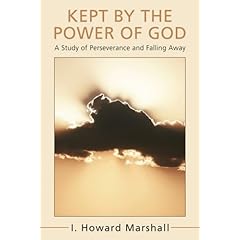 Thanks to Thomas Nelson for the review copy. This book is, as its subtitle proclaims, "a biography" of a beer. But, it is obviously more than that. In short, it is the biography of a family and a company whose history is seasoned with devotion to Jesus Christ and to the conviction that faith can be lived out beyond the walls of a church. In this interesting and readable journey through 250 years of history, Mansfield writes an engaging chronicle of how this family's faith shaped the ethos of a company and led it to be a leader both in the quality of the product it produced and in the way it formed a corporate culture. I can't say I'd ever thought of beer as a particularly healthy drink (probably due to a lot of baggage that often comes with the beverage in its American context), but its value as a safe and wholesome alternative to either unsafe water or to harder liquor in the early years of the company was part of the motivation behind its beginnings.
Thanks to Thomas Nelson for the review copy. This book is, as its subtitle proclaims, "a biography" of a beer. But, it is obviously more than that. In short, it is the biography of a family and a company whose history is seasoned with devotion to Jesus Christ and to the conviction that faith can be lived out beyond the walls of a church. In this interesting and readable journey through 250 years of history, Mansfield writes an engaging chronicle of how this family's faith shaped the ethos of a company and led it to be a leader both in the quality of the product it produced and in the way it formed a corporate culture. I can't say I'd ever thought of beer as a particularly healthy drink (probably due to a lot of baggage that often comes with the beverage in its American context), but its value as a safe and wholesome alternative to either unsafe water or to harder liquor in the early years of the company was part of the motivation behind its beginnings. I was fascinated by the way this company continually chose to be a leader in the way it treated its workers, from the way company doctors aggressively sought to improve the living conditions of turn-of-the-twentieth-century workers, to the preservation of jobs for people in military service during the second world war, to the high wages it paid. I was also intrigued by the pattern of heirs apparent sidestepping their path to the company for full-time Christian ministry.
In all, this was both an entertaining and informative study on how one family and company have lived out their faith. It certainly gives food for thought on how our corporate culture today often falls short.



